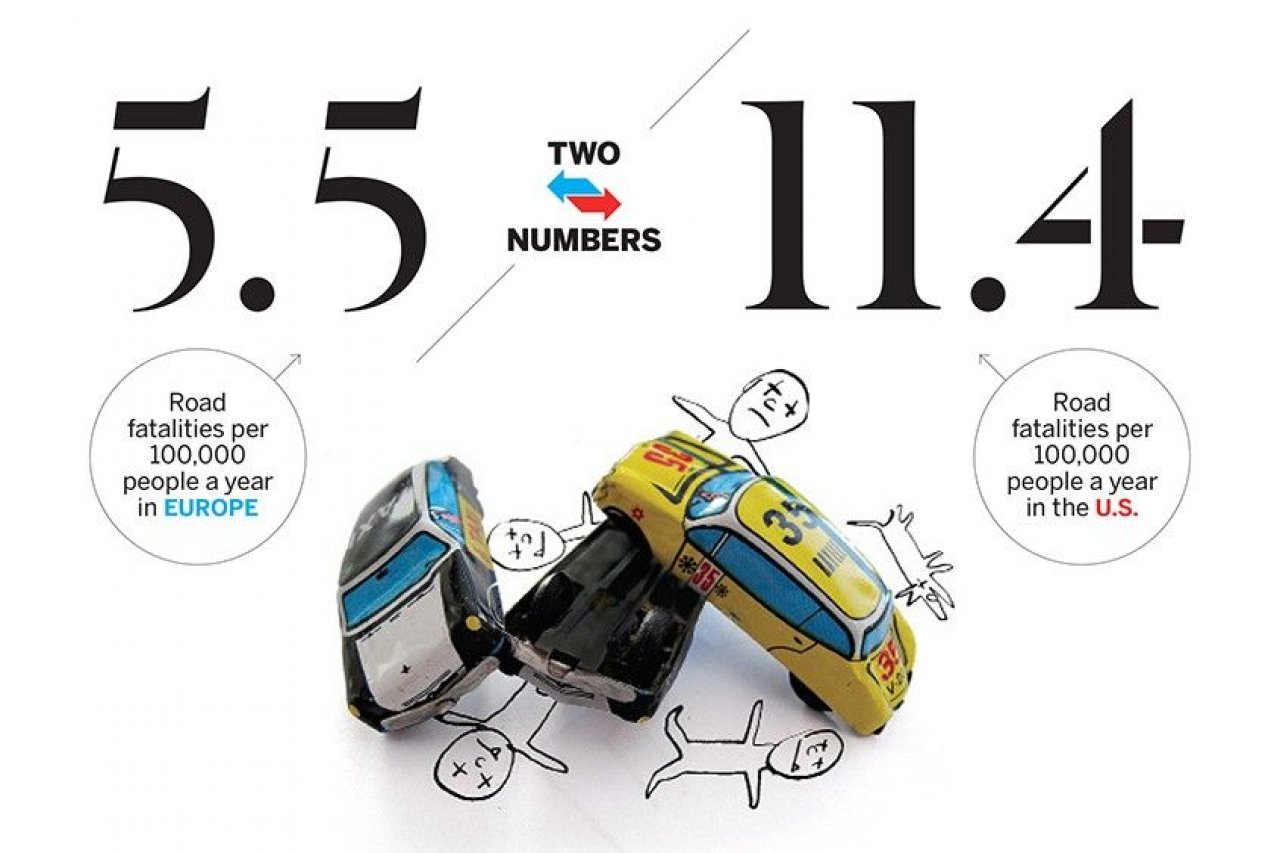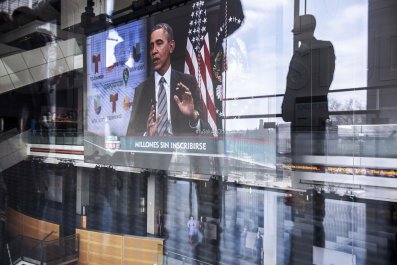Roshard Charles, the 5-year-old boy struck by a car as he was crossing the street with his mother in Brooklyn, is the latest in a string of traffic fatalities in New York City. Mayor Bill de Blasio has vowed to make road safety a top priority, setting the ambitious goal of zero traffic related deaths. Meanwhile Congress is investigating GM for a safety issue possibly linked to 12 deaths. Considering that around 35,000 Americans will die in car-related accidents this year, lawmakers might find more success studying Europe. Road safety in Europe is far better than in the United States.
Americans die on the roads at twice the rate of Europeans. Against all rich countries the U.S. doesn't fare much better. The World Health Organization calculates an average of 8.7 fatalities per 100,000 people in high income countries compared with 11.4 in the U.S. and only 5.5 in the European Union. Subpar road safety in the U.S. shows up in other measures too, such as deaths per car or deaths per mile driven.
So what are other countries doing that we're not? Some countries made road safety a priority and got results. Sweden for instance, has a zero-tolerance policy on traffic-related deaths and injuries, and it has been building roads for safety rather than speed or convenience. Last year, 264 Swedes died on the roads, the lowest level ever, around three fatalities per 100,000 people.
Other countries have focused on drunk-driving laws. Researchers found random breath testing is the single most effective way to reduce deaths related to driving and alcohol. Australia had significant success in lowering road deaths related to alcohol by introducing widespread breath testing and its death rate is now around five fatalities per 100,000 people. In general, other rich countries tend to allow less alcohol in drivers' blood than prevailing limits in the U.S.
Last, enforcement of speed limits is stricter in many European countries. Speed cameras, for instance, can be very effective. Speeding tends to be haphazardly enforced in the U.S., where it is sometimes considered an important source of revenue rather than a means of ensuring safety.
To be fair, traffic-related death rates have been trending down in developed countries, including the U.S. But compared to other wealthy nations the U.S. still has a long way to go. While it is too late for Roshard Charles, de Blasio's efforts at road safety could lead to safer roads nationwide.




















